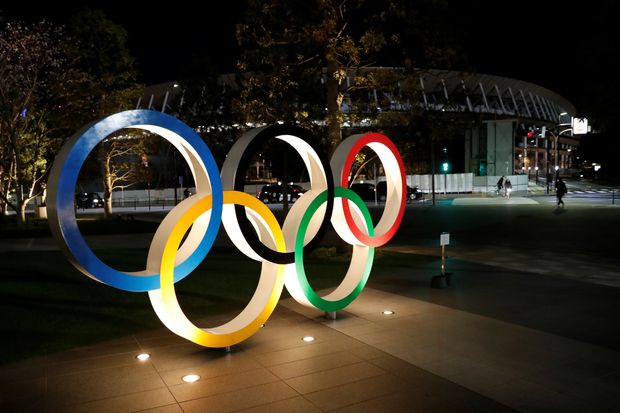Tokyo: IOC member John Coates, who oversees planning for next year’s Tokyo Olympics, has claimed the postponed games could help ‘kick start’ Japan’s economy. But then many don’t think on the same lines.
Japan has been devastated like many countries by the coronavirus pandemic and could be in a recession when the Olympics are to open July 23, 2021.
“These Games are a very positive opportunity for an economic stimulus,” John Coates said in a teleconference Friday with the Tokyo organising committee.
“These Olympics can help kick start the economy again. The Games could be the rebirth of the tourism industry,” Coates added.
Coates also praised Japanese Prime Minister Shinzo Abe, calling him a ‘very, very smart man’. He said Abe also viewed the Games next year as providing an economic stimulus.
But economists and Olympic researchers contacted by this agency said any economic boost will be negligible. This is due to the size of Japan’s $5 trillion economy and the limited tourism and economic benefits from the Games.
In some previous Olympics, soaring prices and crowding have discouraged tourists instead of attracting them. “His predictions fly in the face of all the research on the financial impacts of hosting the Games ‘on a good day’. The current global crisis does not qualify as ‘a good day’,” Helen Lenskyj, a professor emerita at the University of Toronto, said in an email.
Lenskyj has written eight books on the Olympics, including the most recent — ‘The Olympic Games: A Critical Approach’. She suggested Japan would be better off if it did not have to finance next year’s Games.
“At this moment in history, ‘a very smart man’ would be wishing his country did not have the added burden of hosting the Olympics,” Lenskyj said.
Japan is officially spending $12.6 billion to organise the Olympics, although a government audit report in December said it was twice that much. All but $5.6 billion is taxpayer money.
IOC and Japanese officials say they don’t know the cost of the one-year delay. However, rough estimates have put the costs at $2 billion to $6 billion. Nearly all of the added costs fall to Japan under an agreement signed in 2013 when Tokyo was awarded the Olympics.
Coates confirmed the IOC would be spending ‘several hundred million dollars’ because of the postponement. However, he has said ’there will be some negative impacts’ for Tokyo because of the delay.
“If Tokyo is hoping that a surge of tourism is going to cover the costs of moving the games by a year, they are likely to be very disappointed,” Victor Matheson, a sports economist at the College of the Holy Cross, said in an email.
Matheson and colleague Robert Baumann calculated the impact of foreign tourism on the 2016 Rio de Janeiro Olympics. They discounted local spending since it was simply moving expenditures from one place in the country to another. They said Rio had 60,000 added arrivals and estimated $5,000 spending by each arrival — an impact of $300 million.
Rio spent about $13 billion to organize the Olympics, and some put the figure at $20 billion.
AP
